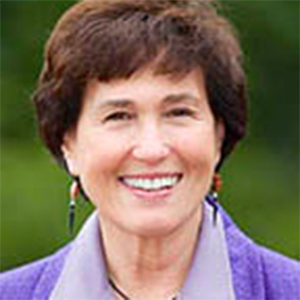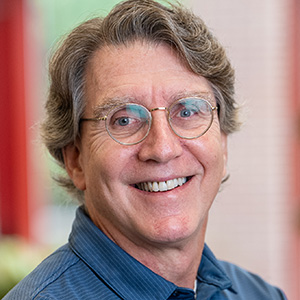First class
The title of fellow has a long history in academia and professional societies and typically designates distinguished members or partners who have contributed significantly to a field or endeavor. Over the past year, the leadership of the American Society for Biochemistry and Molecular Biology established a fellows program to recognize members of our society who have demonstrated exceptional commitment to the ASBMB and made outstanding contributions to advance the molecular life sciences.
The Membership Committee took on the responsibility of implementing the program by defining criteria and developing a process for selection of the fellows. The committee decided that fellows should demonstrate exceptional service through active participation and leadership in ASBMB programs and should personify the core values of the ASBMB through scientific achievements, educational endeavors, mentorship, commitment to diversity, and/or service to the society and the scientific community. Our objective was to select fellows who represent the breadth and diversity of the society's membership and all its missions.
A call for nominations for fellows was announced electronically to members in society publications (including ASBMB Today) and on our website. Nominations were accepted from regular, industry and emeritus ASBMB members in good standing. There was an immediate and robust response. It became obvious that our society has a very large number of accomplished members who have served the ASBMB and advanced the life sciences in many ways. A subgroup of the Membership Committee screened and assessed the candidates, the assessments were then discussed with the whole committee, and finally a list of 30 candidates (out of about 100 nominees) was submitted to and approved by the ASBMB Council. The list was announced during the 2021 ASBMB annual meeting in late April.
The 2021 fellows are indeed a distinguished group of scientists who have contributed to multiple missions of our society over a sustained period of time and enriched our world through their efforts and accomplishments. It was an honor to be part of the process to recognize this group, and their contributions make us proud to be members of the ASBMB.
Natalie Ahn, University of Colorado Boulder
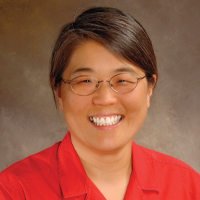
Natalie Ahn is a distinguished professor of biochemistry at the University of Colorado Boulder. Her lab merges proteomics, cell biology and biophysical approaches to investigate signal-transduction mechanisms, particularly those implicated in cancer.
Ahn served as president of the American Society for Biochemistry and Molecular Biology from 2016 to 2018. Before that she was a member of the society's Council. She was nominated to be an ASBMB fellow by Ruma Banerjee, who wrote: "Natalie worked tirelessly to enhance the status of the national meeting and selected a new editor-in-chief for (the ASBMB's) flagship journal, JBC, which ushered in sweeping and positive changes. … Natalie's scientific record is stellar. … She is most deserving of the recognition that would be conferred as an ASBMB fellow."
She earned her Ph.D. from the University of California, Berkeley, and did postdoctoral work at the University of Washington.
Karen Allen, Boston University

Karen Allen is a professor and chair of the chemistry department at Boston University. Her lab uses structural biology techniques to study enzyme evolution and substrate specificity, with a longstanding focus on the haloalkanoate dehalogenase superfamily. Her lab also has designed inhibitors for several enzymes from pathogens that cause understudied diseases such as elephantiasis.
Allen is a former member of the ASBMB Council and secretary of the society and a founding member of the Women in Biochemistry and Molecular Biology Committee.
She was nominated to be an ASBMB fellow by Ann Stock and Tina Iverson, who wrote that Allen "is a superb scientist who has made fundamental contributions to the field of enzymology … has her pulse on the leading questions of the field and is an investigator with the highest integrity and values."
Allen earned her Ph.D. at Brandeis University and did postdoctoral training at the Massachusetts Institute of Technology.
Teaster Baird Jr., San Francisco State University
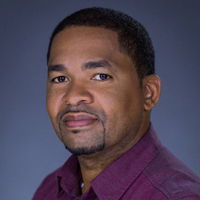
Teaster Baird Jr. is a professor and chair of the department of chemistry and biochemistry at San Francisco State University. A dedicated educator who has led many initiatives within and beyond his university to improve science education, Baird also maintains a research program in serine protease enzymology, examining and engineering the enzymes to modify their catalytic activity, substrate specificity and interactions with macromolecular inhibitors .
Baird has served the ASBMB as the Southwest regional director of Student Chapters for at least six years and remains the faculty adviser for his university's Student Chapter. For 10 years, he served on the steering committee that developed concept-driven teaching strategies in biochemistry and molecular biology.
He was nominated to be an ASBMB fellow by a panel of seven colleagues from SFSU and the ASBMB Student Chapters program, who wrote that "he sees potential, provides opportunities, and gives a voice to students and faculty who often are forgotten or overlooked … (and) is constantly pushing the boundaries of the way students are educated."
Baird earned his Ph.D. from Duke University and was a postdoctoral fellow both at Duke and at the University of California, San Francisco.
Ruma Banerjee, University of Michigan

Ruma Banerjee is a professor of biological chemistry at the University of Michigan whose lab studies the enzymes that metabolize and transform sulfur-containing compounds. Her work focuses especially on coenzymes, notably vitamin B12, or cobalamin.
Banerjee was nominated to be an ASBMB fellow by Tina Iverson, who wrote, "Ruma is a mover and shaker in enzymology … (who) has maintained this field-leading research program in the context of extensive service to her home institutions and the world at large."
Among her many service projects, Banerjee has served on the ASBMB Council and Minority Affairs Committee; is the founding co-PI of the society's Maximizing Opportunities for Scientific and Academic Independent Careers, or MOSAIC, program; and is an associate editor of the Journal of Biological Chemistry. She has been the recipient of numerous awards, including, in 2019, the ASBMB–Merck Award, which recognizes outstanding contributions to research in biochemistry and molecular biology.
Banerjee earned her Ph.D. at Rensselaer Polytechnic Institute and was a postdoctoral fellow at the University of Michigan.
Suzanne Barbour, University of North Carolina at Chapel Hill
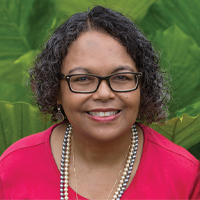
Suzanne Barbour is the dean of the graduate school and a professor at the University of North Carolina at Chapel Hill.
Barbour served on the ASBMB Education and Professional Development Committee for 12 years. She is now a member of the Minority Affairs Committee and the Council. Barbour serves on the Annual Meeting Program Planning Committee and organized scientific sessions for the 2020 annual meeting. She has been on the Journal of Lipid Research editorial board for almost 14 years.
She was nominated to be an ASBMB fellow by Sterling Bradley, who wrote that Barbour "is a recognized national advocate for many aspects of career development and the challenge facing working scientists and the coming generation of scientists."
Barbour earned her Ph.D. at Johns Hopkins University and did postdoctoral training at the University of California, San Diego. She has been a program director at the National Science Foundation and a dean at the University of Georgia.
J. Ellis Bell, University of San Diego

J. Ellis Bell is a lecturer at the University of San Diego. A dedicated educator, Bell has published extensive pedagogical research and also pursues structural biology studies in a lab jointly run with his wife, USD professor Jessica Bell.
Ellis Bell won the 2015 ASBMB Award for Exemplary Contributions to Education. That award recognized his service to biochemistry education as a long-serving member of the Education and Professional Development Committee; he led the committee that developed concept-driven teaching strategies in biochemistry and molecular biology, and he also played a key role in developing the ASBMB accreditation program.
Bell was nominated as an ASBMB fellow by Marilee Benore, who wrote, "Ellis' gift is his ability to step back and allow faculty to work within the strategic outline to create change, develop professionally and then step into their own leadership roles."
Bell earned his doctorate at Oxford University and did postdoctoral research at Duke University.
Squire Booker, Pennsylvania State University

Squire Booker is a professor and distinguished chair at Pennsylvania State University, where his lab studies the catalytic mechanisms of redox enzymes involved in natural product biosynthesis and human health. He is also a Howard Hughes Medical Institute investigator.
Booker has chaired the ASBMB's Minority Affairs Committee and was the founding principal investigator on the ASBMB Interactive Mentoring Activities for Grantsmanship Enhancement grant writing workshop. He also co-organized the 2016 ASBMB annual meeting. He now serves on the Finance and Nominating committees.
Booker was nominated to be an ASBMB fellow by Ruma Banerjee, who wrote, "Squire's work is characterized by its elegance and rigor. … His research productivity is all the more impressive given his heavy teaching load and service commitments both at Penn State and nationally."
Booker earned his Ph.D. at the Massachusetts Institute of Technology and did postdoctoral research at the Université René Descartes in Paris and the University of Wisconsin. He is an elected member of the American Academy of Arts and Sciences and the National Academy of Sciences.
George Carman, Rutgers University

George Carman is a professor at Rutgers University and director of the university's Center for Lipid Research. He has made seminal contributions to the understanding of the regulation of phospholipid synthesis using the yeast Saccharomyces cerevisiae. His group identified the molecular function of the yeast version of mammalian lipins, phosphatidic acid phosphatase enzymes that are crucial regulators of fat metabolism.
Carman is a repeat associate editor for the society's Journal of Lipid Research and is a former associate editor for its Journal of Biological Chemistry. He won the society's 2012 Avanti Award in Lipids, which recognizes outstanding research contributions in the area of lipids.
He also has served on and as chair of the society's Meetings Committee and Annual Meeting Program Planning Committee. He also has been a member of the ASBMB Council and Awards Committee and co-organized numerous society events.
Alfred H. Merrill Jr. at Georgia Tech University nominated Carman to be an ASBMB fellow. "George has made impressive contributions to science through both the discoveries of his laboratory and his assistance to others through these activities," he wrote.
Carman earned his master's degree from Seton Hall University before going on to complete his Ph.D. at the University of Massachusetts. He did postdoctoral work at the University of Texas Medical School in Houston.
Michael Cox, University of Wisconsin–Madison
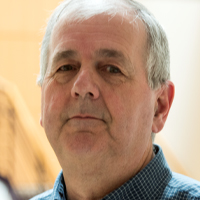
Michael Cox is an endowed professor in the University of Wisconsin–Madison department of biochemistry. His lab studies DNA replication and repair and is best known for contributions to understanding the RecA and Flp recombinases, which have become widely used tools for biotechnology and developing transgenic model organisms.
Cox served as a member of the ASBMB Council and an associate editor of the Journal of Biological Chemistry; he was a member of the steering committee that developed concept-driven teaching strategies in biochemistry and molecular biology and continues to advise his university's ASBMB Student Chapter. He has served for many years as a judge in the undergraduate research poster competition at the ASBMB annual meeting.
UW–Madison colleague Aaron Hoskins, who nominated Cox as an ASBMB fellow, wrote, "Mike is a remarkable scientist. … From writing a grant to writing an exam, Mike has been an exceptional scientific role model in every way."
Cox earned his Ph.D. at Brandeis University and was a postdoctoral researcher at Stanford University School of Medicine.
Enrique De La Cruz, Yale University

Enrique M. De La Cruz is a professor at Yale University, where he leads the molecular biophysics and biochemistry department and Branford College. His lab studies the actin cytoskeleton, molecular motor proteins and nucleotide signaling enzymes.
De La Cruz is an associate editor for the Journal of Biological Chemistry and an advisory board member for the society's Maximizing Opportunities for Scientific and Academic Independent Careers, or MOSAIC, program. He previously served on and chaired the society's Publications Committee, served on the Meetings Committee, co-organized a 2013 annual meeting thematic session and co-organized the 2014 annual meeting.
Mark Hochstrasser at Yale nominated De La Cruz to be an ASBMB fellow. "Enrique is an active member of the ASBMB and is an exemplary scientist in his research, teaching and training, particularly of underrepresented scientists. … He has done an enormous amount of work in helping to build diversity both here at Yale and elsewhere."
De La Cruz earned his Ph.D. at the Johns Hopkins University School of Medicine and completed postdoctoral training at the University of Pennsylvania.
Edward Dennis, University of California, San Diego

Edward Dennis is a distinguished professor at the University of California, San Diego. He has made important contributions to the study of lipid metabolism and cell signaling through his research on phospholipase A2 enzymes. Importantly, he pioneered the lipidomics movement.
Dennis has been a member of the ASBMB Council and served as the first chair of the ASBMB Annual Meeting Program Planning Committee, program chair of the 1996 annual meeting, and on the society's Membership Committee, Education and Professional Development Committee, and Finance Committee. He was a member of the Publications Committee when the society started the journal Molecular & Cellular Proteomics and acquired the Journal of Lipid Research, and he went on to serve as editor-in-chief of the JLR for 15 years. He also served on the editorial board of the Journal of Biological Chemistry. He won the society's 2000 Avanti Award in Lipids and its 2020/2021 Bert and Natalie Vallee Award in Biomedical Science.
George Carman nominated Dennis to be an ASBMB fellow. "Numerous investigators have entered the field of phospholipases and signal transduction as well as lipidomics because of the contributions of Dr. Dennis," Carman wrote. "These investigators do not even include the many graduate students and postdoctoral fellows that Dr. Dennis has mentored at the University of California at San Diego. The fact that many of his past students are now leaders in the field in their own right is testimony of his outstanding ability to train and motivate people."
Dennis earned his master's degree and Ph.D. from Harvard University and completed postdoctoral training at Harvard Medical School.
John Denu, University of Wisconsin‒Madison

John Denu is a professor at the University of Wisconsin‒Madison, where his lab studies enzymes responsible for adding and removing post-translational modifications. Recently, his team revealed new regulatory mechanisms that link metabolism and chromatin function, opening up new insights into diet, gut microbiota and the epigenome.
Denu has served as an editorial board member and now is an associate editor of the Journal of Biological Chemistry. He also serves on the ASBMB Nominating Committee. He has organized both scientific sessions and professional-development events for the ASBMB annual meeting.
Sharon Dent, who nominated Denu as an ASBMB fellow, wrote, "John's research is consistently trailblazing. … John is a highly productive scientist … (who) is also highly committed to teaching and mentoring."
Denu earned his Ph.D. at Texas A&M University and completed postdoctoral training at the University of Michigan.
Henrik Dohlman, University of North Carolina

Henrik Dohlman is a professor at the University of North Carolina, Chapel Hill, where he chairs the pharmacology department and studies G protein–coupled receptor signaling and desensitization in yeast. His lab was the first to demonstrate G protein regulation by GTPase-activating RGS proteins, mono- and poly-ubiquitination, and proton second messengers.
Dohlman has been an ASBMB member for more than three decades. He served multiple terms on the editorial board of the Journal of Biological Chemistry and today is an associate editor.
Jeremy Thorner, who nominated Dohlman as an ASBMB fellow, wrote, "Henrik has made numerous path-finding contributions about what are now known as G-protein coupled receptors. … Moreover, in the process, he has trained legions of his own Ph.D. students and postdoctoral trainees."
He earned his Ph.D. at Duke University and completed postdoctoral training at the University of California, Berkeley.
William Dowhan, University of Texas Health Science Center at Houston McGovern Medical School
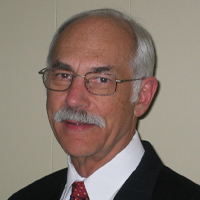
William Dowhan is an endowed professor in biochemistry and molecular biology at the University of Texas Health Sciences Center McGovern Medical School, where his lab studies lipid‒protein interactions. His lab found that lipids are involved in proper folding of membrane proteins and that changes to the lipid environment can alter membrane protein activity.
Dowhan won the ASBMB's 2005 Avanti Award in Lipids, which recognizes outstanding research contributions. He has served on the society's Meetings Committee and organized a scientific symposium for the annual meeting. He is a past editorial board member for the Journal of Biological Chemistry.
"Dr. Dowhan's success lies in successfully challenging dogma … use of evolving technology and approaches … and generating new concepts," wrote George Carman, who nominated Dowhan as an ASBMB fellow.
Dowhan earned his Ph.D. at the University of California, Berkeley, and did postdoctoral research at Harvard Medical School.
Catherine Drennan, Massachusetts Institute of Technology
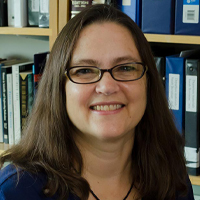
Catherine Drennan is a professor at the Massachusetts Institute of Technology and a Howard Hughes Medical Institute investigator. She studies the structural biology of metalloenzymes. Her lab's targets have included multiple enzymes that depend on metal cofactors, such as ribonucleotide reductase, an early enzyme in DNA biosynthesis. Drennan was once a high school science and drama teacher, and she has remained committed to developing teaching best practices and research-based modules for students ever since.
As a postdoctoral fellow in 1997, Drennan started the undergraduate poster competition at the ASBMB annual meeting. She ran it for the next five years. She also served on the ASBMB Education and Professional Development Committee during the period when the society developed its undergraduate biochemistry curriculum recommendations. She later served on the Publications Committee. In 2013, she co-organized a themed session on catalytic mechanisms for the ASBMB annual meeting, and she is organizing one on enzymology for the 2022 meeting.
In her nomination letter, Tina Iverson at Vanderbilt University noted Drennan's "deep commitment to education and inclusivity" and her "long service to ASBMB, her contributions to training, and her stature as a world leader in the field."
Drennan earned her Ph.D. from the University of Michigan and completed her postdoctoral research at the California Institute of Technology.
Takita Felder Sumter, Winthrop University
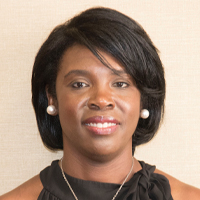
Takita Felder Sumter is the dean of the College of Arts & Sciences and a professor at Winthrop University.
She has been deputy chair and later chair of the ASBMB Minority Affairs Committee. She was instrumental in creating the society's Marion B. Sewer Distinguished Scholarship for Undergraduates and co-led the Interactive Mentoring Activities for Grantsmanship Enhancement program. She helped organize regional workshops and other activities that ultimately led to the creation of two new mechanisms to evaluate student learning: the ASBMB degree-accreditation program and the ASBMB certification exam.
She has been a regional director for the society's Student Chapters program, and she has served for the past decade and a half as a judge for the annual undergraduate poster competition. Sumter is now on the ASBMB Council.
Heather J. Evans Anderson at Stetson University, who nominated Sumter to be an ASBMB fellow, wrote: "Taken together these efforts exemplify Dr. Sumter's exemplary mentorship skills and her commitment to service to ASBMB and the scientific community. … Overall, the products of Dr. Sumter's mentorship skills have established broad contributions and her widespread impacts will continue to influence the next generation of science education and production of scientists."
Sumter earned her Ph.D. at the University of South Carolina and completed a postdoctoral fellowship at the Johns Hopkins University School of Medicine.
Karen Fleming, Johns Hopkins University
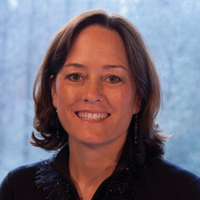
Karen Fleming is a professor at Johns Hopkins University and a pioneer in the study of membrane-protein folding. Her lab focuses on beta-barrel proteins of the bacterial outer membrane and investigates the structural basis of chaperone interactions with unfolded membrane proteins.
Fleming is an associate editor of the Journal of Biological Chemistry and a past member of the Council. She has organized multiple meetings in protein biophysics, including events for the ASBMB, and she has been a vocal advocate for equity in scientific careers.
Cynthia Wolberger, who nominated Fleming as an ASBMB fellow, wrote, "She has worked extensively on issues facing women in STEM … and has recently expanded her efforts to confront issues that face both women and men of color."
Fleming earned her Ph.D. at Georgetown University and did postdoctoral training at Yale University.
Lila M. Gierasch, University of Massachusetts Amherst
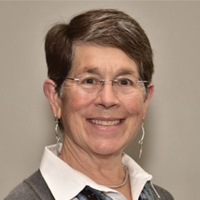
Lila Gierasch is a distinguished professor and former department head at the University of Massachusetts Amherst. Her lab studies protein folding, investigating the mechanisms of molecular chaperones and the effects of misfolded protein aggregates.
She has been the editor-in-chief of the Journal of Biological Chemistry since 2016. She was the 2014 recipient of the ASBMB's Mildred Cohn Award, which honors scientists who have made substantial advances in understanding biological chemistry using innovative physical approaches.
Daniel Hebert, who nominated Gierasch as a fellow, wrote that, beyond her many accolades, "What is most special about Lila are the so many things she does that do not show up on a resume. Beyond serving as an example of excellence and dedication, she cares deeply about her trainees and colleagues."
Gierasch earned her Ph.D. at Harvard University. She joined Amherst College as a faculty member immediately after finishing her Ph.D. and subsequently held positions at the University of Delaware and the University of Texas Southwestern Medical Center before joining UMass Amherst. Gierasch is an elected member of the National Academy of Sciences and a fellow of the American Academy of Arts and Sciences.
F. Peter Guengerich, Vanderbilt University
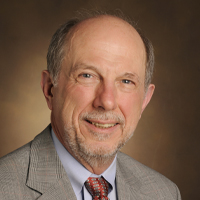
F. Peter Guengerich is a professor at Vanderbilt University School of Medicine Basic Sciences. His lab studies mechanisms of activation and detoxication of chemical carcinogens and toxicants and characterizes enzymes involved in these processes. Major areas of interest include the metabolism of carcinogens and drugs by cytochrome P450 enzymes, the bioactivation of halogenated hydrocarbons, and polymerase interactions with carcinogen-modified DNA.
Guengerich has served as an editorial board member, associate editor, interim editor-in-chief and, most recently, deputy editor of the Journal of Biological Chemistry. He also has been a member of the society's Public Affairs Advisory Committee and the Council. In 2005, he won the ASBMB William Rose Award, which recognizes outstanding contributions to biochemical and molecular biological research and a demonstrated commitment to the training of younger scientists.
Lawrence J. Marnett nominated Guengerich as an ASBMB fellow, writing that his "extraordinary accomplishments in scientific research are matched only by his devotion to the ASBMB." Marnett added that his inclusion "will go far to distinguish the body of fellows as being the very crème de la crème of the august body of scholars, educators, and public servants represented by the ASBMB."
Guengerich earned a Ph.D. at Vanderbilt and completed postdoctoral training at the University of Michigan.
Heidi Hamm, Vanderbilt University
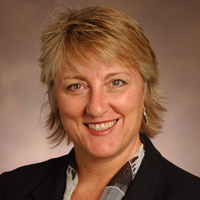
Heidi Hamm is a professor at Vanderbilt University School of Medicine Basic Sciences, where she once led the pharmacology department. Her lab is focused on G proteins' roles in protease-activated receptor signaling in the cardiovascular system and regulation of exocytosis at synapses.
Hamm served as the president of the ASBMB from 2006 to 2008. Before that, she was a member of the Council and Annual Meeting Program Planning Committee. She also has been an editorial board member for the Journal of Biological Chemistry. She won the society's 2001 Fritz Lipmann Memorial Lectureship, which recognizes conceptual advances in biochemistry, bioenergetics and molecular biology.
Tina Iverson, who nominated Hamm to be an ASBMB fellow, emphasized Hamm's commitment to advocating for science, writing that "her national contributions to science advocacy and her stature as a world leader in the field warrant her inclusion."
Hamm earned her Ph.D. at the University of Texas at Austin and did postdoctoral research at the University of Wisconsin‒Madison.
William Merrick, Case Western Reserve University School of Medicine
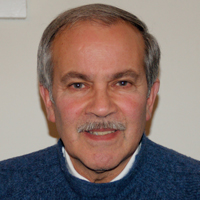
William Merrick is a professor at the Case Western Reserve University School of Medicine. His lab seeks to identify all of the eukaryotic translation initiation factors and determine their sequential utilization in the initiation pathway as well as to characterize how the initiation pathway is regulated and the different consequences depending on the exact point of regulation.
Merrick has been an ASBMB member for almost 50 years. He served on the society's Public Affairs Advisory Committee and as the PAAC chair. He was a member of the society's Annual Meeting Program Planning Committee and a symposium chair for the 2006 annual meeting. In addition, he has served as the ASBMB representative to the American Association of Medical Colleges.
He has been a member of the Journal of Biological Chemistry editorial board, during which time he was a lead reviewer for papers on protein synthesis. He continues to serve as an external reviewer from time to time.
Thomas Dever nominated Merrick as an ASBMB fellow, writing, "His work has established much of our current understanding of the initiation pathway for eukaryotic protein synthesis and the biochemical properties of the translation factors."
Merrick earned his Ph.D. at the University of Georgia and completed a postdoctoral fellowship at the National Institutes of Health.
Alexandra Newton, University of California, San Diego

Alexandra Newton is a distinguished professor at the University of California, San Diego, and co-director of the graduate program's molecular pharmacology track. Her lab investigates the molecular mechanisms of cell signaling and how they are deregulated in disease, with particular emphasis on protein kinase C and the phosphatase PHLPP.
Newton has served on the ASBMB Nominating Committee, the Annual Meeting Program Planning Committee and the Council. She has been an editorial board member for the Journal of Biological Chemistry and has organized numerous ASBMB symposia. She co-chaired the 2004 and 2007 International Union of Biochemistry and Molecular Biology/ASBMB congresses in Boston.
She won the ASBMB Avanti Award in Lipids in 2008. She has served as the ASBMB representative to the IUBMB general council and was elected president of the IUBMB, a role she will assume in July.
John D. Scott nominated Newton to be an ASBMB fellow, writing, "Alexandra is a thought leader in the field of signal transduction, a role model for the next generation of women biochemists, and a tireless advocate for ASBMB. … There is no question that ASBMB is a better organization as a result of (her) insights, commitment and enthusiasm."
Newton earned her Ph.D. from Stanford University and did postdoctoral research at the University of California, Berkeley.
Daniel Raben, Johns Hopkins University School of Medicine

Daniel Raben is a professor at the Johns Hopkins University School of Medicine. His lab began by investigating the molecular species of lipids generated in signaling pathways and now studies the enzymology, structure, regulation and function of lipid-metabolizing enzymes. These studies have focused some attention on the regulation and roles of these enzymes in the nervous system, particularly the central nervous system.
Raben has chaired the ASBMB Meetings Committee for the past eight years. He is also on the executive committee of the society's Lipid Research Division, which he co-founded. In the past, he chaired the ASBMB Task Force on Graduate and Medical Education and served multiple terms on the Journal of Biological Chemistry editorial board.
Michael Wolfgang, Binks Wattenberg and Jessica Ellis nominated Raben as an ASBMB fellow. Wolfgang wrote, "It is hard to imagine another ASBMB member who has contributed as much service to the society in as many capacities over the last 25 years." Wattenberg wrote, "His extensive, selfless, and underappreciated contributions to the Society are exemplary," and Ellis wrote, "His leadership skills and passion for the society are extremely evident."
Raben earned his Ph.D. from Washington University and was a postdoctoral fellow at the University of California, Irvine.
Kerry-Anne Rye, University of New South Wales
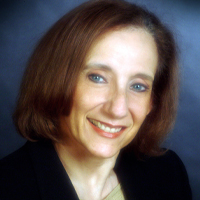
Kerry-Anne Rye is a research professor, head of the Lipid Research Group and deputy head of research in the University of New South Wales School of Medical Sciences. With expertise in high-density lipoprotein structure, function and metabolism, she and her team study signal-transduction pathways in multiple cell types to identify new therapeutic targets for atherosclerosis and diabetes.
Rye is co-editor-in-chief of the Journal of Lipid Research. She was nominated as an ASBMB fellow by Nicholas Davidson, her fellow JLR co-editor-in-chief, who wrote, "Rye has had a long and distinguished scientific career, in which she has advanced the molecular life sciences, through her own research programs as well as through her commitment to education and mentorship and as well as her service to the society." If appointed a fellow, he wrote, Rye would doubtless be "an exemplary international ambassador for the organization and a wonderful role model for successful women scientists everywhere."
Rye earned her Ph.D. from Flinders University in South Australia and did postdoctoral work at the University of Illinois at Urbana‒Champaign. In 2017, she won the American Heart Association Arteriosclerosis, Thrombosis, and Vascular Biology Council Mentor of Women Award.
Sarah Spiegel, Virginia Commonwealth University
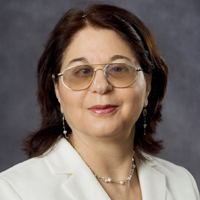
Sarah Spiegel is a professor at Virginia Commonwealth University, where she chairs the biochemistry and molecular biology department. She is also director of the VCU Massey Cancer Center's cancer cell biology program. The Spiegel lab studies lipid sphingosine-1-phosphate and discovered its role as a bioactive mediator in cell-growth regulation.
Spiegel has served on the editorial board of the Journal of Lipid Research for more than a decade and was a member of the Journal of Biological Chemistry editorial board from 2010 to 2018. She won the ASBMB's 2009 Avanti Award in Lipids.
Suzanne Barbour, who nominated Spiegel as an ASBMB fellow, said she "is a remarkable scientist whose brilliant career has helped to launch and sustain an entire field of biochemistry. In the process, she has trained outstanding scientists and thus has contributed to the development of human resources as well."
Spiegel earned her Ph.D. in biochemistry at the Weizmann Institute of Science in Rehovot, Israel, and did postdoctoral work at the National Institute of Neurological Disorders and Stroke. She was named one of Virginia's outstanding scientists and industrialists of 2008.
Wesley Sundquist, University of Utah School of Medicine
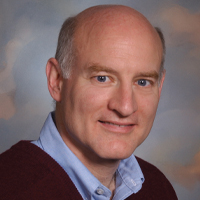
Wesley Sundquist is a distinguished professor and the biochemistry department co-chair at the University of Utah School of Medicine. His laboratory originally studied HIV protein structure and assembly, and his work supported the development of a drug candidate that blocks capsid function, which is now in clinical trials. The lab's studies of interactions between the virus and the host endomembrane system have led to a deeper understanding of virus budding and cell biology.
Sundquist is a former member of the ASBMB Council and has served as chair of the Public Affairs Advisory Committee. He also won the 2003 ASBMB‒Amgen Award, which was for new investigators who had made significant achievements in the application of biochemistry and molecular biology to the understanding of disease.
Dana Carroll, who nominated Sundquist as an ASBMB fellow, wrote, "It has been my pleasure to have Wes Sundquist as a colleague … and to witness his amazing accomplishments."
Sundquist earned his Ph.D. at the Massachusetts Institute of Technology and conducted postdoctoral research at the Medical Research Laboratory of Molecular Biology in the United Kingdom. He is an elected member of the National Academy of Sciences.
Susan Taylor, University of California, San Diego
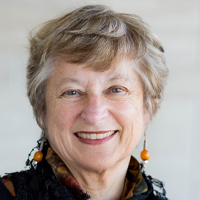
Susan Taylor is a distinguished professor at the University of California, San Diego, in the departments of pharmacology and of chemistry and biochemistry. Her lab studies the structure, function and dynamics of cAMP-dependent protein kinase using crystallography, kinetics, fluorescence, hydrogen–deuterium exchange, small-angle X-ray/neutron scattering, cryo-EM and computational tools to define conformational changes, ligand binding sites and sites of protein‒protein interaction. She also uses fluorescence imaging to elucidate isoform specificity of PKA signaling in tissues.
Taylor won the ASBMB's 2017 Earl and Thressa Stadtman Distinguished Scientist Award and 2007 William C. Rose Award. She served as the society's president and as a member of the Council, the Nominating Committee, the Publications Committee and the editorial board of the Journal of Biological Chemistry. She planned national meetings and organized workshops including pseudokinase meetings in 2015 and 2018.
She was nominated as a fellow by Alexandra Newton, who wrote, "Susan's service to biochemistry and training the next generation of biochemists is exceptional. … Her leadership has had a far-reaching impact, from UCSD to a global level. … Her infectious enthusiasm for biochemistry is unparalleled."
Taylor earned her Ph.D. from Johns Hopkins University and completed postdoctoral studies at the Medical Research Council Laboratory of Molecular Biology in England and at UCSD. She is an elected member of the National Academy of Sciences, the American Academy of Arts and Sciences, and the National Academy of Inventors.
Herbert Weissbach, Florida Atlantic University

Herbert Weissbach is an emeritus professor at Florida Atlantic University. His lab studies how cells respond to oxidative stress and how oxidative damage can be prevented. At previous stages in his 65-year biochemistry career, Weissbach worked on serotonin and melatonin biosynthesis and metabolism and discovered and investigated the coenzyme form of vitamin B12. After the genetic code was cracked, Weissbach spent years studying the mechanism of protein synthesis. He was a founding member of the Roche Institute of Molecular Biology and a vice president of Hoffmann‒La Roche before returning to academia.
Weissbach has been involved with the ASBMB since it was called the American Society of Biological Chemists. He has served as an associate editor for the Journal of Biological Chemistry, treasurer of the society, and member of the Annual Meeting Program Planning, Nominating and Membership committees.
Weissbach earned his Ph.D. from George Washington University while carrying out research at the National Institutes of Health. He did postdoctoral studies at the University of California, Berkeley, and then returned to the NIH before accepting a position at Hoffmann–La Roche. He is an elected member of the National Academy of Sciences.
Adele Wolfson, Wellesley College
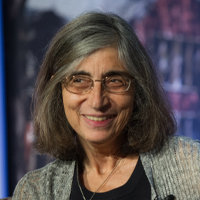
Adele Wolfson is a professor emerita of chemistry and natural and physical sciences at Wellesley College. She studied proteases and peptidases with a focus on the enzyme thimet oligopeptidase, which terminates the signal of bioactive peptides. Her recent educational research focuses on concept inventories in biochemistry and on understanding how students connect learning in science and nonscience courses.
Wolfson is a member and former chair of the ASBMB Programmatic Accreditation Committee, and she was nominated as a fellow by 13 current and former members of that committee, who jointly wrote, "Adele is a role model for committee leadership. … She balances a focus on rigor and consistency with the recognition of diversity and promotion of inclusiveness. … She has helped lead this society and helped shape its positions as we move forward into the next decade."
Wolfson earned her Ph.D. at Columbia University and did postdoctoral work at the University of Paris. She is a fellow of the American Association for the Advancement of Science.
Stephen Young, University of California, Los Angeles
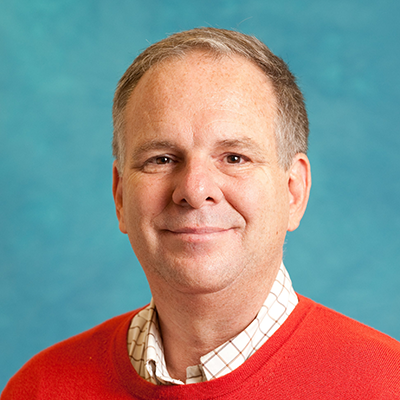
Stephen Young is a distinguished professor of medicine and human genetics at UCLA. Working closely with UCLA colleagues, Young has investigated mechanisms by which lipoprotein lipase is transported to the capillary lumen and how the fatty acid products of intravascular triglyceride processing move across endothelial cells and into vital tissues such as the heart.
Young is an associate editor of the Journal of Lipid Research. He is a member of the board that manages the annual ASBMB Deuel Conference on Lipids and has served as that meeting's treasurer. He was the Havel lecturer at the 2009 Deuel Conference.
He was nominated as an ASBMB fellow by Peter Tontonoz, who wrote, "Dr. Young is an international leader in the field of metabolism whose work has transformed decades-old models of lipid physiology. … He has been the force that has kept the Deuel meeting financially viable and scientifically vibrant."
Young attended medical school at Washington University in St. Louis and completed internal medicine training at UC San Francisco and cardiology training at UC San Diego. He did postdoctoral research training in lipid metabolism at UCSD. He is an elected member of the National Academy of Sciences.
Enjoy reading ASBMB Today?
Become a member to receive the print edition four times a year and the digital edition monthly.
Learn moreGet the latest from ASBMB Today
Enter your email address, and we’ll send you a weekly email with recent articles, interviews and more.
Latest in People
People highlights or most popular articles

Finding a symphony among complex molecules
MOSAIC scholar Stanna Dorn uses total synthesis to recreate rare bacterial natural products with potential therapeutic applications.

Sketching, scribbling and scicomm
Graduate student Ari Paiz describes how her love of science and art blend to make her an effective science communicator.

Embrace your neurodivergence and flourish in college
This guide offers practical advice on setting yourself up for success — learn how to leverage campus resources, work with professors and embrace your strengths.

Survival tools for a neurodivergent brain in academia
Working in academia is hard, and being neurodivergent makes it harder. Here are a few tools that may help, from a Ph.D. student with ADHD.

Quieting the static: Building inclusive STEM classrooms
Christin Monroe, an assistant professor of chemistry at Landmark College, offers practical tips to help educators make their classrooms more accessible to neurodivergent scientists.

Hidden strengths of an autistic scientist
Navigating the world of scientific research as an autistic scientist comes with unique challenges —microaggressions, communication hurdles and the constant pressure to conform to social norms, postbaccalaureate student Taylor Stolberg writes.

